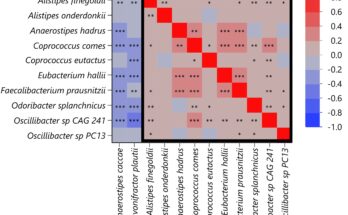
Regular exercise helps prevent and delay the development of type 2 diabetes and its complications. Researchers at Karolinska Institutet, together with a team of international scientists, have discovered that activation of the immune system in skeletal muscle during exercise may underlie the difference in how individuals with type 2 diabetes perceive and respond to exercise. These findings are published in the journal Science Advances.
Individuals with type 2 diabetes typically have a dysregulated inflammatory response in multiple tissues, which is associated with the complications of the disease such as insulin resistance and cardiovascular diseases. In this study, the researchers unravel a fundamental role for exercise-responsive cytokines, exerkines, on skeletal muscle development and growth in individuals with normal glucose tolerance or type 2 diabetes.
“In individuals with type 2 diabetes, an acute bout of exercise activates the immune system in a manner that is distinct and enhanced compared to healthy volunteers,” says Professor Juleen R. Zierath at the Department of Molecular Medicine and Surgery and the Department of Physiology and Pharmacology, Karolinska Institutet, who led the study.
Untrained men diagnosed with type 2 diabetes were recruited together with healthy volunteers of similar age and body weight. The volunteers were asked to perform a single bout of exercise on a cycle ergometer. The research team collected blood and skeletal muscle biopsies in which they measured the response to exercise.
The researchers found that several cytokines, molecules produced by the immune system in response to stress, were produced in the skeletal muscle from individuals with type 2 diabetes. The effect of those cytokines was tested in cells in culture to determine whether those molecules affect the way skeletal muscle cells react to exercise.
Regular exercise decreases the inflammatory response
“Given the health-promoting effects of regular physical exercise on metabolism and skeletal muscle function, the exacerbated inflammatory response in individuals with type 2 diabetes is likely a beneficial response to acute exercise,” says Professor Juleen R. Zierath. “Activation of the immune system will likely decrease if exercise is repeated regularly during training regimens,” she adds.
Reduced inflammation would be beneficial for glucose control and to mitigate the complications associated with type 2 diabetes.
“We now need to understand how we can modulate the inflammatory response to exercise. Doing so may enhance the benefits of exercise and help people better manage type 2 diabetes with adequate training protocols,” says Nicolas Pillon, Assistant Professor at the Department of Physiology and Pharmacology, Karolinska Institutet and first author of the paper.
Nicolas J. Pillon et al, Distinctive exercise-induced inflammatory response and exerkine induction in skeletal muscle of people with type 2 diabetes, Science Advances (2022). DOI: 10.1126/sciadv.abo3192
Citation:
Individuals with type 2 diabetes respond differently to exercise (2022, September 8)
retrieved 8 September 2022
from https://medicalxpress.com/news/2022-09-individuals-diabetes-differently.html
This document is subject to copyright. Apart from any fair dealing for the purpose of private study or research, no
part may be reproduced without the written permission. The content is provided for information purposes only.
Source link




